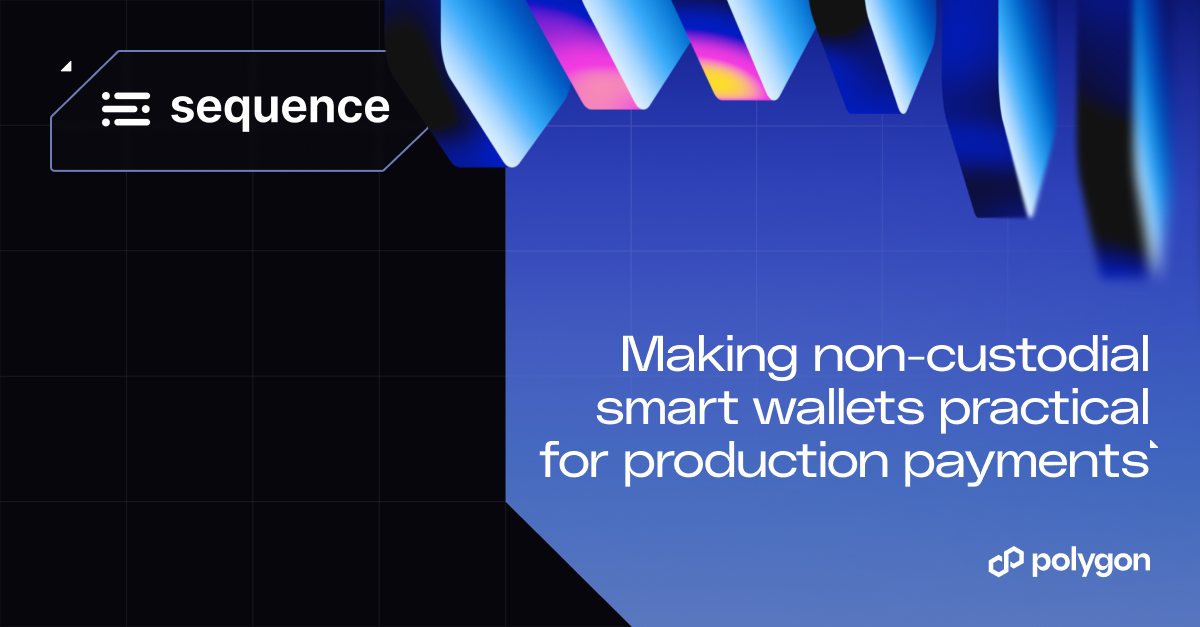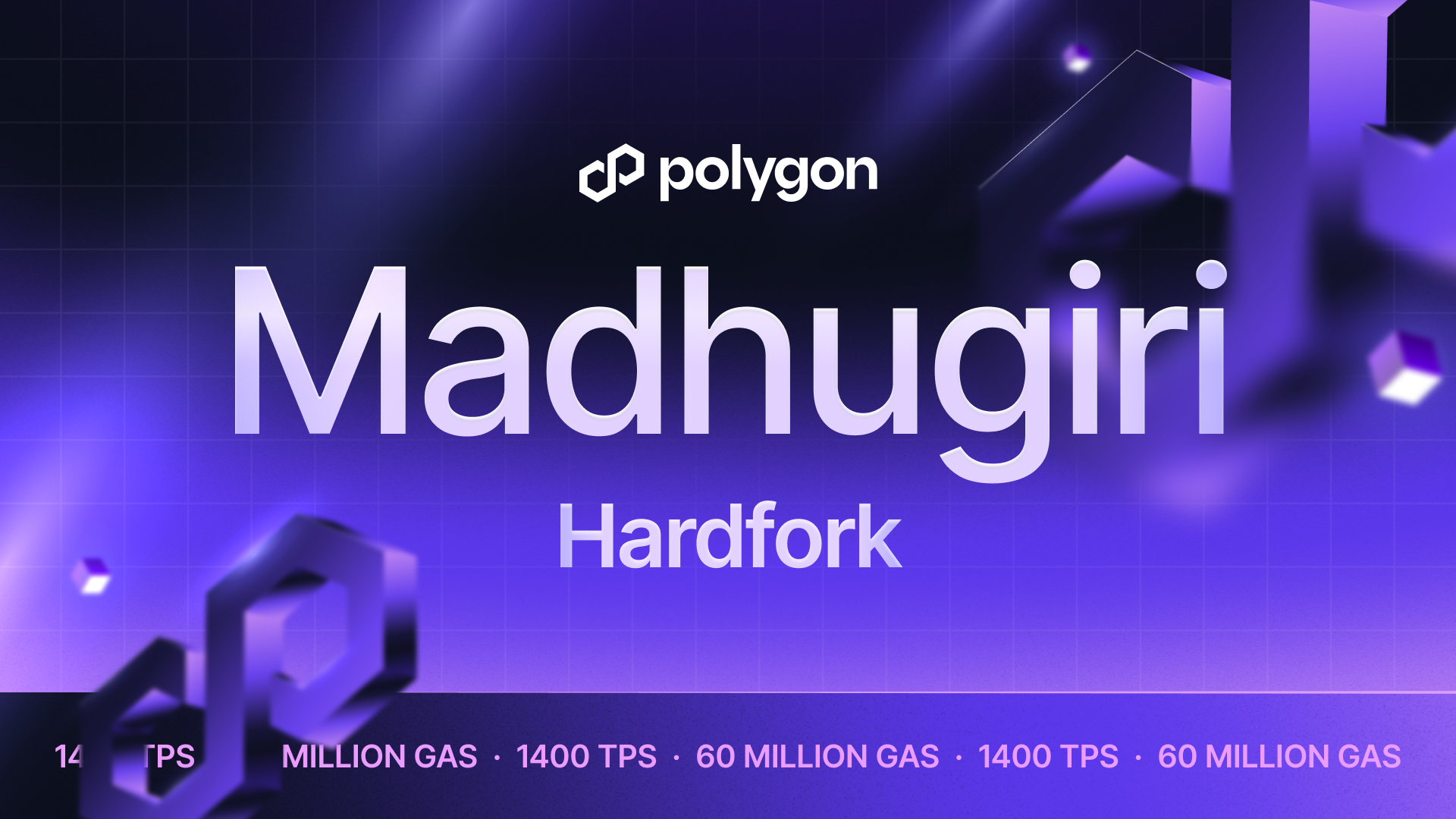Fabric Teams Up with Polygon Labs to Introduce Revolutionary Hardware: Verifiable Processing Units (VPUs) for ZK
Custom chips will change the ZK game by removing persistent barriers to maximizing performance
.avif)
In ZK, performance is always the name of the game. We all know ZK is the future of crypto and Web3, but there’s one pesky problem that keeps cropping up: ZK tech is only as practical as its ability to efficiently generate and verify ZK proofs. And when you get right down to it, that means ZK software is only as good as the hardware it’s running on.
This constraint has also led to some great engineering: Plonky2, the fastest proving system for recursive proofs, was optimized for consumer-grade hardware. But the long-term goals for ZK require something beyond faster proving—it requires real-time proving. And to achieve this while keeping proof-generation low-cost and practical, a new kind of hardware is needed.
Enter Fabric’s custom VPU (Verifiable Processing Unit), the next generation of crypto-native hardware. Polygon Labs will be making a $5 million investment to acquire VPU-based server systems, making Polygon Labs the very first protocol to invest in these chips.
The goal? Accelerate all ZK-powered Polygon-related protocols, from the AggLayer to Polygon zkEVM to the ZK infra of Polygon CDK.
VPU will implement complete end-to-end systems for the Plonky2 and Polygon Plonky3 proving systems, both of which were developed by Polygon Labs core devs and others—and both of which are integral to ZK tech across the Polygon network, including the AggLayer.
With Fabric’s VPU, ZK tech will finally have the hardware it deserves.
Hardware is the accelerant
Processors are at the heart of digital technology–and the key to historic leaps in performance. In the 1970s, the first CPUs turned personal computing from a sci-fi glimmer on the horizon into a feasible reality. In the 1990s, enhanced GPUs gave us 3D graphics and forever changed the way humans interface with machines. And then, in the 2010s, yet another set of advances in GPU tech has given rise to the AI boom.
If ZK is the future of crypto (spoiler: it is!), then it’s only reasonable to build hardware that gets the most out of the tech. Polygon is the leader in ZK performance, with Plonky2 and now Polygon Plonky3 leading the way.
But Polygon Labs is not a hardware company. We know how to build a proving system, but we knew we needed an S-tier collaborator to engineer the optimal hardware.
That’s where Fabric comes in.
Fabric is building a Processor for Web3, optimized for ZK
Let’s take a moment to imagine the ideal hardware to support Polygon ZK technology. It would need to be high-performance. It would need to support general-purpose cryptography. It would need to be easily programmable. And it would need to be scalable—that is, mass producible and affordable.
So what can check all these requirements? An ASIC, like those developed for Bitcoin? No. ZK proof systems change too fast for something like a fixed function ASIC to keep up.
The best solution is a custom processor, optimized for ZK cryptography.
Fabric’s VPU (Verifiable Processing Unit) will support dozens of cryptographic primitives, from the generalized Merkle tree to Plonk and beyond. It will also support more big-integer operations than a typical GPU–900%, to be exact.
As the world’s first massively parallel, general-purpose processors for cryptography, Fabric’s VPUs will also offer vastly superior performance compared to widely used general-purpose CPUs or GPUs. Each VPU card features 3 FC1000 chips.The FC1000 chip is a complete system-on-chip dedicated to accelerating proof systems end-to-end. It uses an on-chip CPU (RISC-V), exceptional memory bandwidth, and unprecedented cryptographic compute (40 custom tiles per chip, and 120 tiles per card). Workloads are also highly performant and parallelizable, from the chip to the server level, due to Fabric’s full compiler and software stack.
The FC1000 chip that powers Fabric’s VPU has some heavy-duty specs, featured below:

The upshot is that crypto as a whole, and ZK tech specifically, have reached the point at which it’s economical and necessary to develop operation-specific hardware. That’s exciting, and Fabric will be leading the way in collaboration with the Polygon community. Fabric’s current roadmap aims to deliver a beta prototype of Plonky2 and Polygon Plonky3 accelerated end-to-end on the VPU in 6-12 months.
Powering the AggLayer
The AggLayer is the foundation for the next generation of crypto and Web3, but it can get even better. Because the AggLayer is still in development and will rely on ZK proofs for its core functions, it has room to gain speed and efficiency along the same vector as ZK performance in general.
That is to say, better hardware will yield a better AggLayer. Real-time ZK proving means seamless UX across chains in the AggLayer ecosystem, by reducing finality and overall transaction time.
Fabric’s VPU points the way towards a future in which crypto and Web3 are limited not by performance, but only by creativity. The whole Polygon community is waiting to see what can be built once is unconstrained by performance limitations–and supercharged by the Fabric VPU.
Tune into the blog and our social channels to keep up with updates about Polygon.
The future of Web3 is aggregated.
Website | Twitter | Forum | Telegram | Discord | Instagram | LinkedIn | Polygon Knowledge Layer






.jpg)
.jpg)
.png)

.png)






%20(1).png)